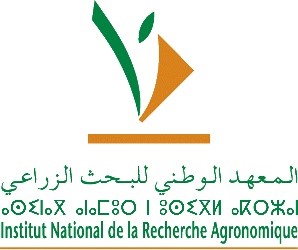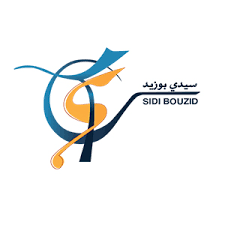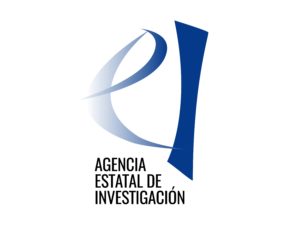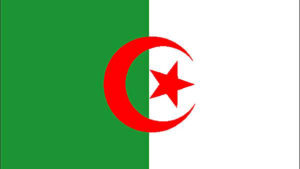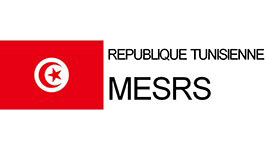The Ecole Supérieure d’Agricultures of Angers (ESA) is one of the largest institutes of higher education for life sciences in France. ESA has been instrumental in the development of agriculture in France, and has developed a national and international dimension. The LEVA research group, under contract with the French National Research Institute for Agriculture, Food and Environment (INRAE), brings together agronomists, plant ecophysiologists and soil biologists who have recognized expertise in the agro-ecological functions of grain legumes in cropping systems (mainly pea, faba bean, lupin), nitrogen use efficiency, soil fertility and weed control. The LEVA works in collaboration with farmers and stakeholders, and develops tools to help farmers manage their cropping systems. The research group LARESS brings together economists and sociologists who investigate the impact of environmental and/or technological innovations on the performance of farms and how farmers incorporate innovations into their practices and farm management.
Prof. Joëlle FUSTEC
Domaine experimental du Val d’Ainan (DEVA)
Castelnau-Le-Lez, France
The DEVA is an experimental farm with diversified fruit production in agroforestry and cereal-legume cropping systems linked with pastures grazed by horses and cows. Since 2016, the DEVA hosts a factorial agronomic trial in cooperation with agro-environmental strategy of the « Pays Voironais », to assess the effects of composts from the city of Voiron on the soil content of C, N and P, and the symbiotic nitrogen fixation and yield of legumes in rotation with cereals.
Dr. Jean-Jacques DREVON
The National Center for Scientific Research (Centre National de la Recherche Scientifique, CNRS) is the French’s largest public research institution, a global leader in multidisciplinary research and fundamental science. The CNRS ranks 2nd worldwide (natureindex.com et Scopus, Scimago 2018). CNRS has 31.500 employees, including 11 000 researchers. Its research is driven by 10 research institutes. Among these, CNRS ranks 3rd worldwide in 2019 for its major Earth and Environmental Science hub that is the Institute of Ecology and Environment (INEE). EcoLab, involved in this proposal, is located in Toulouse and belongs to the INEE. The lab has a wide experience in legume genetics and genomics, and genetic analysis of adaptation to biotic and abiotic stress, having the necessary infrastructure for plant research as well as strong cooperation with Mediterranean academic partners.
Dr. Cécile BEN
The UMR 1222 Eco&Sols “Ecologie Fonctionnelle et Biogéochimie des Sols et des Agroécosyst.mes is a Joint Research Unit with 70 permanent staff from INRAE, IRD, Montpellier SupAgro and CIRAD. The Research undertaken by Eco&Sols sets out to improve the understanding of the role of soil organisms and plants and the interactions between them and their environment in biogeochemical cycles – mainly C, N and P cycles – within soils and agroecosystems. The Research is centred on the concept of ecological engineering to determine how C, N and Pflows can be regulated. It is based on a comparison of crop production systems that incorporate, among severalagronomic practices, the use of plurispecific populations (e.g. intercropping of cereal and legumes) and the use of Nitrogen fixing microorganisms. The biogeochemical cycles of carbon (C) and nutrients (N and P) are studied mainly in agrosystems of the mediterranean zone (as for the data that will serve as a basis for modeling in this project) and the tropical zone. The modeling approach (including numerical modeling) is central to the design of the unit. Eco&Sols has, notably, i) a strong expertise in the design of agronomic experiments in controlled soil conditions and ii) in measuring in the field and in the labs several data for model calibration.
Dr. Laurent COURNAC
The National School of Biotechnology Taoufik Khaznadar (ENSB) is a young public school affiliated to the Ministry of Higher Education and Scientific Research (MESRS). It is located at the new Ali Mendjeli University Center in Constantine. It ensures the missions of higher education, scientific research and technological development in various fields related to biotechnology. With a staff of 65 Lecturer-Researchers, the school has the mission of graduation engineers and masters in five fields of biotechnology sciences (Medical biotechnology, Pharmaceutical biotechnology, Microbial biotechnology, Environmental biotechnology and Plant biotechnology). Members of staff have collaborative links with national and international research laboratories, and also work in close collaboration with national research centers such as the Biotechnology Research Center (CRBt), Field Crops Technical Institute (ITGC) and the National Institute for Agricultural Research (INRAA).
Dr. Mustapha BANI
CIRTA Club Semences (CIRTA)
Sétif, Algeria
The Association CIRTA Club Semences brings together 30 farms with a surface area of more than 19000 ha. The association members are all involved in agriculture (owners or engineers) to perform the new technics and developments of the sector. CIRTA Club Semences is also involved with the university of Sétif and the national research center in a national project on improvement of seeds and production of cereals.
Mrs. Faouzia BENSOUIKI
The UNIPVM, Dipartimento di Scienze Agrarie, Alimentari ed Ambientali (D3A), carries out scientific research and teaching in different agricultural areas: agronomy, agricultural engineering and landscape, biochemistry, plant biology and forestry, chemical sciences, tree crops, agricultural genetics, plant pathology, agricultural entomology food, industrial, and environmental microbiology, agricultural and environmental economic systems, physical sciences, food science and technology, soil sciences and animal production. Referring to the research activity, the Department boasts many national and international projects and partnerships.
Prof. Stefano TAVOLETTI
LARI is a Lebanese public research institution that conducts applied and basic scientific research for the development and advancement of the agricultural sector in Lebanon. LARI has at its disposal 12 experimental stations in an area of 280 hectares of agricultural land. The stations are located in diverse agricultural areas where subtropical and temperate corps are produced. In these stations, research projects are conducted to solve problems facing the agricultural sector in this area. Research findings are directly transferred to the farming community in the following areas: Cereals, Root crops, Pastures, Grain legumes, Veterinary medicine, Plant nutrition and Pest management. Hybrid seed, Tissue culture and biotechnology output are also reaching the farmer via the multi-channel system available in the country (public and private institutions, and the private sector). LARI, Plant breeding department, has a wide expertise in rusts epidemiology, cereal and legumes variety release, variety adoption and has collaborated with many international centers like ICARDA, CIMMYT, BGRI in cereal and legume field. European collaboration has been established with such as INRAE-France, CIHEAM-Bari.
Dr. Rola EL AMIL
INRAM (National Institute of Agricultural Research of Morocco) is a leader Moroccan institution working in agricultural research. INRAM is an autonomous government institution within the Ministry of Agriculture. It’s responsible for crop and livestock research, carrying out programs on genetic improvement, resources genetic conservation, crop management and technology transfer. For that, INRAE is organized as a network of 10 Regional Research Centers representing different agro-ecological regions of Morocco. To achieve its objectives, INRAE capitalizes on its qualified human potential (about 200 Research Scientists, 218 technicians, and 41 managers) and also on a good infrastructure (Laboratories, greenhouses, 23 experimental stations, etc.). Achievement portfolios testify of the pertinent role of INRAM in upgrading agricultural sector at the national level. This outcome, both rich and varied is characterized among others by registration in the Moroccan catalogue of 300 varieties adapted to diverse Moroccan agro-ecological zones and presenting different resistance/tolerance to biotic and/or abiotic stresses.
Dr. Rachid MENTAG
The Laboratory of Physiology and Plant Biotechnology is a research structure in the area of plant biotechnology, located at the Faculty of Sciences, Mohammed V University in Rabat (UM5R). We develop research topics on the resistance of plants to abiotic stresses. We aim to understand mechanisms of adaptation and stress tolerance in plants, and to develop new tools and new strategies for plant improvement and optimizing their use and exploitation in stress conditions. Our team have expertise in molecular biology, tissue culture, genotyping and genetic transformation of plants. We are involved in several national and international projects. We have developed collaborations with several national and international teams including Laboratory of Genomics and Biotechnology of fruits INRAE / ENSAT-Toulouse, Rhizogenesis Laboratory from the Institute of Research for Development (IRD) in Montpellier – France, the National Institute of Agricultural Research (INRAE) – France, Plant Biotechnology Unit of the National Institute of Agricultural Research (INRAE) – Morocco.
Prof. Abdelaziz SMOUNI
CSIC (Spanish National Research Council) is Spain’s largest public research institution, and ranks third among Europe’s largest research organization. CSIC has 10.940 employees, including 3.764 researchers. Its research is driven by its 130 centres and institutes, which are spread across all the country. Among these, the Institute for Sustainable Agriculture (ISA-CSIC) located at Córdoba is the one involved in this proposal. The institute has a wide experience in legume agronomy, plant breeding and crop protection, having the necessary infrastructure for plant research as well as wide cooperation with stakeholders.
Prof. Diego RUBIALES
Ten research centers are now together under Universidade Nova de Lisboa (UNL, http://www.unl.pt/en). UNL will participate in DiVicia through its multidisciplinary research centre, Instituto de Tecnologia Química e Biológica António Xavier (ITQB NOVA, www.itqb.unl.pt). ITQB-NOVA is one of the leading research centers for the chemical and life sciences in Portugal, and a major national and international resource for basic and applied research. Currently with 63 independent teams, ITQB NOVA hosts more than 460 researchers. ITQB NOVA has presently 22 internationally funded projects running including 3 ERC grants, and 4 Marie Curie Actions. In this multidisciplinary Institute two ITQB NOVA long collaborating labs joint expertise of relevance to the present project objectives: The “PlantX” studying the genetic basis of complex agronomic traits, such as disease and drought resistance in legume genetic resources of national interest, with a strong focus on participatory plant research involving farmers and other end-users; and the “PCB” studying crop’s stress physiology (e.g. molecular mechanisms underlying drought adaptation in legumes) and seed biology and technology.
Dr. M Carlota VAZ PATTO
Sidi Bouzid, Tunisia
The Faculty of Sciences and Techniques of Sidi Bouzid (FSTSBZ) created in September 2012, comes to restore the balance of the university map in the country and contribute to the development of the central regions. One of the University of Kairouan faculties, FSTSBZ houses a biotechnology department hiring a number of agronomists, plant ecophysiologists, genetecists, plant molecular biologists and microbiologists who have recognized expertise in the A the agroecological functions of grain legumes (pea, faba bean, common bean, sulla carnosa, alfalfa…), particularly nitrogen use efficiency, soil fertility and rhizobia isolation, identification and plant inoculation in controlled systems and in the field. FSTSBZ have a connection with a number of research structures like the Centre of Biotechnology of Borj Cedria, the centre of Biotechnology of Sfax, the Centre of Research in Agriculture of Sidi Bouzid and multiple faculties, and aspiring to establish an international relationship. Because the region is known by its soil fertility and multiple cropping systems, FSTSBZ is establishing partnerships with farmers and agricultural associations in a sustainable development mission. multidisciplinary Institute two ITQB NOVA long collaborating labs joint expertise of relevance to the present project objectives: The “PlantX” studying the genetic basis of complex agronomic traits, such as disease and drought resistance in legume genetic resources of national interest, with a strong focus on participatory plant research involving farmers and other end-users; and the “PCB” studying crop’s stress physiology (e.g. molecular mechanisms underlying drought adaptation in legumes) and seed biology and technology.






